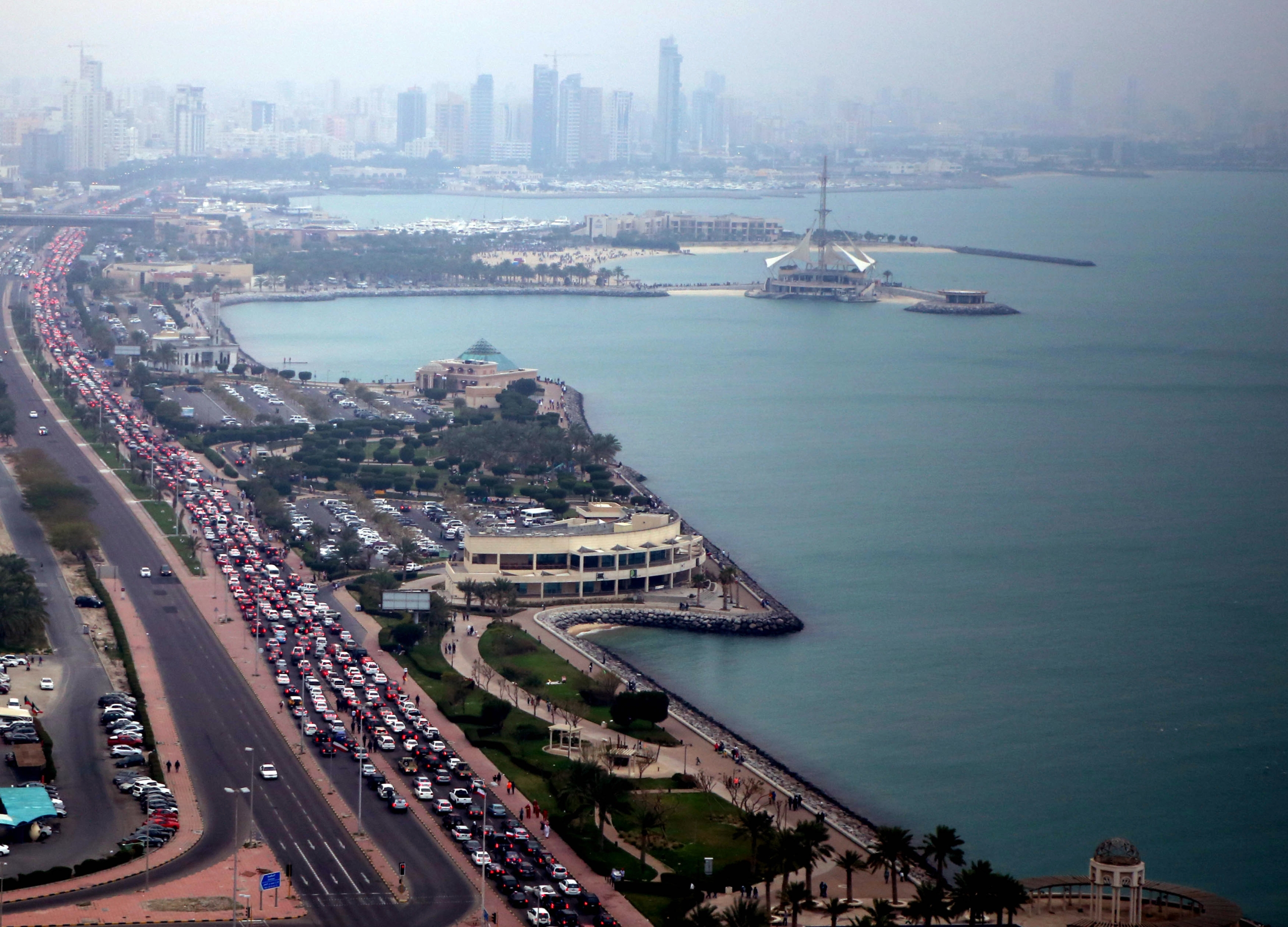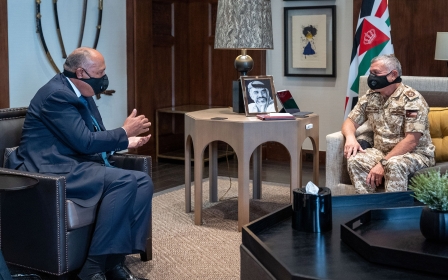Arabic press review: Cash-strapped Iraq 'blackmailed Kuwait'

Cash-strapped Iraq 'blackmailed Kuwait'
Kuwait's Alqabas says that it has obtained official correspondence and records that show the emirate's exposure to what it called "political blackmail" by Baghdad.
"Kuwait was blackmailed by Iraq in order to obtain financial aid or investments to help the Iraqi government recover from the severe economic crisis that followed the collapse of oil prices, which was further aggravated by the outbreak of the coronavirus pandemic," reported the pro-government newspaper.
High-ranking Kuwaiti sources said that "one of the most prominent manifestations of this blackmail operation is a two-months old request made by the Iraqi government to Kuwait, soliciting the Kuwaiti authorities to allow an Iraqi delegation to participate in the tripartite maritime border negotiations between Kuwait, Saudi Arabia and Iran".
The newspaper indicated that “Kuwait responded by a strongly worded letter to the Iraqi request, in which it said: ‘You have no right to participate in these negotiations’”.
New MEE newsletter: Jerusalem Dispatch
Sign up to get the latest insights and analysis on Israel-Palestine, alongside Turkey Unpacked and other MEE newsletters
The sources added that "the Iraqi government is taking advantage of a number of unresolved issues with Kuwait, including the demarcation of maritime borders, to put pressure on Kuwait, with the aim of achieving some of the gains that allows Iraq to overcome its internal economic crisis".
According to the same sources, this pressure card used by Iraq to blackmail Kuwait "comes in the context of Iraqi authorities’ failure to obtain new financial aid, which was at the top of Finance Minister Ali Allawi’s agenda when he visited Kuwait in late May”.
Moroccan ministers donate part of salaries
Moroccan ministers have decided to donate one-fifth of their salaries from August until the end of this year for the benefit of "the fund for managing and responding to the coronavirus pandemic," reported London-based Al-Quds Al-Arabi.
A communique issued by the government said that the decision, which was taken during a government session on Thursday, "manifests the spirit of solidarity and synergy among all segments of Moroccan society".
The statement said that the measure “comes as a contribution from the government members to efforts to combat the spread of the coronavirus pandemic, which still calls for more collective mobilisation and engagement by various means in order to mitigate its economic and social impacts".
Moroccan Prime Minister Saadeddine Othmani said that dozens of medical, social and economic measures taken during the last few months have contributed to mitigating the effects of the pandemic socially and economically, the newspaper reported.
Othmani stressed that "despite the fact that our country avoided the worst scenario, the virus is still present, and we have not succeeded in eliminating the pandemic yet".
Sultan of Oman grants amnesty to opponents abroad
The new sultan of Oman, Haitham bin Tariq, has decided to pardon all opponents abroad, without publishing any decree in official media, according to a report published by news website Arabi21.
Oman blogger Muawiyah al-Rawahi has already returned to Muscat after spending years as a political refugee in London.
Rawahi said that Oman's ambassador to London, Abdulaziz al-Hinai, had contacted him and informed him that the sultan had decided to forgive him as well as many others.
Rawahi explained in a video posted on YouTube that the Omani state had paid for his return trip and helped him to end his business in London.
He said that Omani officials had told him that he had a full right to express his opinion within the Sultanate of Oman, without violating the regulations stipulated by official laws.
Political dissident Saeed Jaddad al-Katheeri also released a video in which he pledged allegiance to Sultan Haitham and announced his upcoming return to Oman.
Katheeri also thanked the British government for facilitating his political asylum for several years, said Arabi21.
Before Eid Al-Fitr, Sultan Haitham granted an amnesty to 797 prisoners, including several foreigners.
Tunisian journalist jailed
Judicial sources in Tunisia have confirmed that a court on Thursday sentenced journalist Tawfiq Bin Brik to one year in prison, over statements he made on the TV channel Nessma that were considered as an attack on the prestige of the country's justice system, according to the London-based newspaper Al-Araby Al-Jadeed.
Bin Brik accused the Tunisian judiciary of corruption and nepotism in an interview broadcast on Nessma TV at the end of 2019, in reference to the arrest of one of the channel's owners and one of the presidential candidates at the time, Nabil Karoui, following corruption and tax evasion charges.
Bin Brik had previously been sentenced in absentia to two years in prison, but after appearing in court on Thursday it was decided to reduce the sentence to one year, the newspaper said.
Lawyer Nabil Akrami, who is defending Bin Brik, said the sentence was harsh, particularly because his client had previously criticised the judiciary before the Tunisian revolution and had not been prosecuted.
Bin Brik worked as a reporter for several French newspapers, most notably Liberation, and was one of the most prominent opponents of the government of former Tunisian President Zine El Abidine Ben Ali.
The writer was repeatedly subjected to harassment and a travel ban during Ben Ali’s rule.
* Arabic press review is a digest of reports that are not independently verified as accurate by Middle East Eye.
Middle East Eye delivers independent and unrivalled coverage and analysis of the Middle East, North Africa and beyond. To learn more about republishing this content and the associated fees, please fill out this form. More about MEE can be found here.




